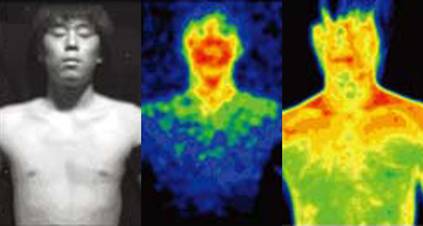Man : Bless the Body (Body Speciality)
- Our body is capable of producing aspirin
Eating fruits and vegetables may
help the human body make its own aspirin. Benzoic acid, a natural substance in
fruits and vegetables, could make their own salicylic acid, the key component
that gives aspirin its anti-inflammatory and pain-relieving properties
- Taking a nap at work is good
A 20-minute nap can improve your
overall alertness, boost your mood, and increase productivity. William Anthony,
co-author of The Art of Napping at Work (Larson Publications, 1999), says the
post-nap boost can last for several hours.
- Every person has a unique tongue print
Just like fingerprints. The tongue
is a unique organ in that it can be stuck out of mouth for inspection, and yet
it is otherwise well protected in the mouth and is difficult to forge. The
tongue also presents both geometric shape information and physiological texture
information which are potentially useful in identity verification applications.
- The foot is home to the body's thickest area of skin
The skin on the palms and the soles
of the feet is 4 mm thick and the thickest skin in the body, the heel portions
of the feet being the thickest portions. It's also got the most sweat glands
than in any other area.
- The appendix isn't as useless as you think
Long denigrated as vestigial or
useless, the appendix actually has a reason to be – as a “safe house” for the
beneficial bacteria living in the human gut. The beneficial bacteria in the
appendix that aid digestion can ride out a bout of diarrhea that completely
evacuates the intestines and emerge afterwards to repopulate the gut.
- The body is taller in the morning than in the evening
The body is taller in the morning
than in the evening. That's because our bodies are on average about half an
inch taller in the morning, thanks to excess fluid between our discs, which is
replenished while we sleep. As the day goes on, and our bodies undergo the
strain of standing, the discs get compressed and the fluid seeps out, so the
body loses that small bit of extra height.

- Humans glow in the dark
It was revealed by ultra-sensitive
cameras that our bodies emit tiny amounts of light that are too weak for the
human eye to detect. Amazing pictures of "glittering" human bodies
were released by Japanese scientists who have captured the first ever images of
human "bioluminescence". Although it has been known for many years
that all living creatures produce a small amount of light as a result of
chemical reactions within their cells, this is the first time light produced by
humans has been captured on camera.
- The stomach produces a new lining every 3 days to avoid digesting itself with its own acids
Your stomach cells secrete
hydrochloric acid, a corrosive compound used to treat metals in the industrial
world. It can pickle steel, but mucous lining the stomach wall keeps this
poisonous liquid safely in the digestive system, breaking down your lunch but
not your own stomach.
- The average person expels flatulence 14 times each day
Even if you'd like to think you're
too dignified to pass gas, the reality is that almost everyone will at least a
few times a day. Digestion causes the body to release gases which can be
painful if trapped in the abdomen and not released.
Take good care of your sacred body.
If you lose some of the functions it is unrepairable.
So don't ever abuse it.
Published on 7/31/2009 under Weird Science - by Gracie Murano

Comments
Post a Comment